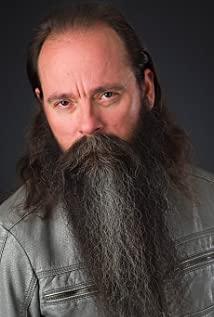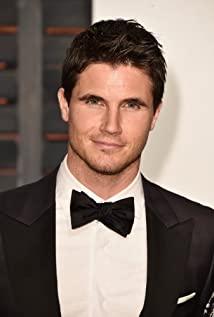Is "immortality" really possible?
With the end of the third season of "Western World", the imagination of the future world involved in the drama once again triggered discussion among the audience.
With the advent of the big data era, users' personal information and consumption habits have become a code in the algorithm. While people enjoy the convenience brought by technology, they gradually lose privacy and personal space.
Maybe one day in the future, artificial intelligence can really customize a set of life guides for everyone. It will tell you what to choose is the most effective, and what to choose will make you worry-free.
When human beings as an independent individual completely transfer the power of choice to technology, what is the difference between us and the receptionist living in the western world?
Another core motif in the "Western World" series is about uploading consciousness. In the second season, the audience learned about the theme park of the entire Western World. It is not essentially a wine forest for the rich to indulge, but an internal encounter with people within the company. Big data collection of the brain.
When users enter the park, their brains are also being observed and studied, and then uploaded as sample data to prepare for the future development of another major project "immortality technology" within the company.
Discussions similar to "uploading of consciousness" and then immortality are often mentioned in film and television works, such as the British drama "Black Mirror" and the movie "Transcendental Hacker".
Ray Kurzweil predicted in the 2005 best-selling book "The Singularity Is Near" that artificial intelligence will soon include "all human knowledge and skills". Once we have nanoscale brain scanning technology, we can "Gradually transfer your own intelligence, character and skills to non-biological carriers."
In other words, human beings can achieve immortality in the future. Although Kurzweil’s statement sounds well-founded, there are also many opposing voices. For example, Professor Cheng Xianjun of Princeton University argues that uploading consciousness can never be realized because the human brain is composed of 100 billion neurons. It is very complicated to thoroughly study the interaction of the connections between neurons.
Of course, in addition to feasibility, there are still many ethical and philosophical issues worthy of consideration in "uploading consciousness for immortality", such as whether the moral and value benchmarks of human society are still valid in the era of "immortality", and whether human beings as a subject should exist in the end. What is the basis and so on? These are things that we still need to reflect on in the future.
Although there are not a few film and television works of this kind of subject matter, there are still many of the same types that can create some new ideas. If consciousness can really be uploaded to the computer, if humans no longer need the existence of entities, but only rely on data. Brain life, what would such a world look like?
Amazon's self-produced drama "Uploading a Newborn" may give us the answer.
In this play, the director did not try to elevate the theme to the philosophical level of existentialism, nor did he question the "upload of consciousness" in ethics. Instead, he presented and discussed more in the existing capital society and social structure, if There really exists this system that can make people live forever, what kind of operating style will it be in, and how the individuals living in it will recognize their "immortality", maybe this drama can provide us with some new Angles and perspectives.
What has "immortality" changed?
In "Uploading New Life", following a sudden car accident, the protagonist Nathan "die" soon after the opening. Nathan’s girlfriend Margaret is the daughter of a wealthy plutocracy. In order to keep her boyfriend by her side, she chose to upload Nathan’s brain to the “Luxury Behind World” under the brand of “Horizon” of Yongsheng Company. ".
Regarding the "conscious upload" in the play, the consciousness of the dying person is not implanted into the artificial intelligence entity, but through the data collection of the brain, all the customers who purchase the service are put into the lake view villa, where each Customers will be equipped with personal "angel assistants" to enjoy luxurious services.
But not all users who want to "upload" can choose Lake View Villas. This is the first theme that the film tries to discuss, which is the social stratification and the stratification of the social structure caused by the huge difference in wealth distribution in the capital society. The problem of the gap between the rich and the poor that it brings.
Nathan was lucky enough to settle in the Lakeview Villa because of Margaret, but this is just the tip of the iceberg of all uploading consciousness spaces. In addition to the luxurious villas, there are more inexpensive uploading options.
But there, customers cannot be as free as in a villa. For example, the 2G space presented in the play, which is the place where Nathan has been and eventually fell into it, everyone has only a limited amount of traffic per month, if It will be petrified after a full month, and will not be able to act again until next month.
The sharp contrast between the villa and the 2G space is a bit of the semi-underground private and a large villa that Feng Junhao presented in "Parasite".
The poor can only live a life of limited current. Even after death, they are still marginalized and squeezed because of their wealth accumulation and their position in society.
The rich man who possesses a large amount of social resources and capital wealth is like David Jock in the play, a rich man with a value of hundreds of billions. He also has an entire private mansion in an already luxurious villa.
Ironically, at the annual celebration party, the only egg with a bonus was obtained by him. When he said "God blessed the rich", the director's intention became clearer.
Whether it is during or after death, technology may be able to extend our lives, but the entire set of social operating rules are still made by people, and those pyramids that cannot be broken are still solid.
In the play, the director cleverly satirized and criticized the influence of the prevailing consumerism culture on individuals and even the entire society through humor. The dying person uploading consciousness to the villa does not mean that all consumption in it is free, it is just an admission ticket.
In the villa, customers need to pay for what they eat and drink, and anything they want to experience. Of course, for "new humans" who only have consciousness upload, eating and drinking is not necessary for the body, but in order to be able to simulate the feeling of "alive" to the greatest extent, it is necessary to have the link of eating.
To this end, customers need to continue to spend real-world currency in exchange for virtual currency, and get the feeling of "alive" in this way. The villa that looks as warm and comfortable as a paradise is actually nothing but an endless plunder of capital.
In order to be able to "live" and buy more services, even after obtaining immortality, everything becomes no longer important, but in order to continue the quality of life, customers still have to obtain satisfaction through consumption and transactions.
The drawbacks of consumerism are reflected in Nathan’s girlfriend Margaret to the greatest extent. It seems that Margaret uploaded Nathan to the villa because of love, but in fact she is only gaining it through this consumption behavior. Self-satisfaction and sense of value, whether it is Margaret’s wedding for Nathan or an interview between the two, Margaret has always been from her perspective to beautify and whitewash the relationship between the two and her selfless dedication. .
When Nathan went to the villa, he was no longer a person, but just a valuable "toy" for Margaret. From dressing to everything he bought, even his own right to life and death. , Everything is in Margaret's hands.
Margaret’s emphasis on self-image, constantly beautifying herself, dressing herself up, and doing everything she can to embody the young men and women who are trapped by material in the capital era, this kind of almost indulgence and unrestrained consumption concept does not only appear In Margaret, it is the epitome of an era.
Immortal Villa is not necessarily the best choice for Nathan, but it is the one that best demonstrates the identity of Margaret. It is not intended to offend female consumer groups, especially after watching papi sauce because children can be hacked by their names. To give "pseudo-feminism", I really have to be more cautious in words and deeds.
Of course, Margaret has the choice to squander the capital because of her family business. This is a personal choice in itself. This is not a problem. Everyone has the freedom to choose their own lifestyle. But from what Nathan and Margaret demand From the perspective of dislocation and the latter’s control over the former, although Margaret continued Nathan’s life, she also imprisoned him in a sense. Nathan became a toy from a free man, which in itself There is a distorted psychology caused by excessive consumption, not because of love, but for the satisfaction of vanity. The harm to others and the deprivation of dignity and freedom have no bottom line.
Just like Nathan, after being repeatedly restricted by Margaret’s freedom and choice, he would rather choose to spend his own money to live in the 2G space than continue to be Margaret’s prisoner. This is actually a kind of consumerism. Resist, not blindly indulge, have the courage to break this cycle, burst the bubble of desire, perhaps this is the only way out.
The immortal world cannot go out of the various rules of human society. In the final analysis, it is because science and technology still serve people themselves in the end.
The inequality of social structure, the expansion of desire under consumerism, and the indifference to others are not just problems in the present. Even in the afterlife, if people’s consciousness does not change, if the operating mechanism of the entire society remains the same. The appearance, then everything will not have any turnaround.
In the so-called afterlife, what is really changed may belong to the mode of getting along between people. The clients of the villa have no entities and become a set of programs in the real world, but even if they wear immersive interactive devices and interact with each other The clothes in contact, the people who love each other can't have each other for as long as before.
Two or three things behind the "future"
Throughout the whole play, although there are no deep philosophical myths or spectacles, overall "Uploading a Newborn" still gives us no small surprises.
But after the surprise, there will still be some regrets and shortcomings in the whole first season.
For example, Nathan’s personality is the first to bear the brunt. Although the director deliberately set him to be a technologist and narcissistic during his lifetime, when he actually presented Nathan, he felt more gentle and considerate. , Especially after he entered the villa, he was always in the setting of a labeled kind male protagonist.
In fact, there are many things to make a fuss about. For example, Nathan’s personality flipping was caused by his memory loss, but when Nathan retrieved his memory, he still looked like a gentleman, even because he let him in the villa. His personality has changed, but he hasn't seen the struggle after retrieving his memory. As a whole, it may be to present the world view of the whole story, so the characters are often flattened.
The capacity of this season’s ten episodes is reduced. In fact, there are very few things to talk about. The director is too anxious to lay the behind the scenes. The death of Nathan may be the hidden line of homicide, ignoring the relationship between many characters and the transformation of the characters themselves. , Including the relatives who were investigating the death of Nathan at the beginning, there was nothing after being framed and died. Of course, this can be regarded as an ambush for the next season, but this is a bit too deliberate.
Eternal life may become a reality in the future, but for us now, we should take every step of life well, because this is our reality. If one day we can choose to upload consciousness, how would you decide?
View more about Upload reviews











